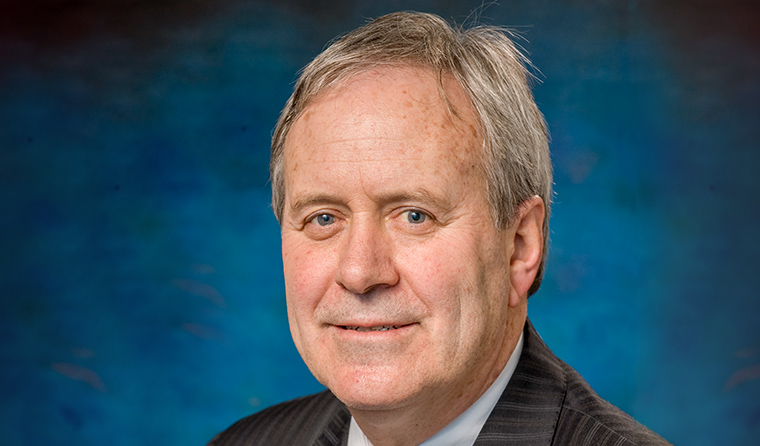News
GPs’ role in navigating the NDIS continues to be overlooked
The NDIS planning interim report makes some useful recommendations for improvements to the scheme in future – but fails to recognise the key part GPs play in the process.
 The recent senate report assessing the NDIS planning process makes no mention of GPs’ role in helping patients to navigate the scheme.
The recent senate report assessing the NDIS planning process makes no mention of GPs’ role in helping patients to navigate the scheme.
Associate Professor Robert Davis is clear when describing GPs’ vital function as the first step in helping patients with disability gain access to – and navigate – the National Disability Insurance Scheme (NDIS).
‘The GP has an initial role when the person is making an application, in identification and verification of the disability,’ he told newsGP.
As Chair of the RACGP Specific Interests Disability network, Associate Professor Davis knows what he is talking about.
‘Also, a person’s disability may not remain the same; changes often come about that need verification, and GPs are involved in that, as well,’ he said.
‘GPs also often have contact with the patient throughout their life and have documentation from specialists’ reports regarding that patient.
‘They can also provide advocacy for their patient when there are issues.’
And the GP role in NDIS planning, Associate Professor Davis argues, could potentially be expanded even further.
‘While GPs are used in that initial phase of eligibility, I think they’re underutilised in terms of identifying the degree of disability and the person’s needs,’ he said.
This is why Associate Professor Davis was so surprised by the fact the NDIS planning interim report, recently released by the Joint Standing Committee on the National Disability Insurance Scheme failed to mention GPs even once in examining the process.
‘The only mention of GPs was in the registry of submissions, because the RACGP had made a submission,’ he said.
‘It’s a fairly fundamental, practical relationship that GPs have with the whole process. I think it certainly needs to be acknowledged, and there are also issues with that in terms of how [the planning process] might be improved for the benefit of the patient or the client of NDIS.’
While the committee behind the report includes two doctors, a psychologist and an HIV specialist, it has no GPs. Associate Professor Davis believes the lack of a GP perspective could cost the committee some valuable insights.
‘I think along the way they haven’t paid as much attention to the need to engage with other sectors, particularly the health sector, and particularly primary healthcare, where there are skillsets and knowledge that could be used to make the whole process more efficient and fairer for the individuals involved,’ he said.
‘The information provided for the assessment of eligibility for an NDIS plan could be better organised or prepared if GPs were more actively engaged in the process and there was some better education coming from NDIS and directed at GPs.’

‘GPs also often have contact with the patient throughout their life and have documentation from specialists’ reports regarding that patient. They can provide advocacy for their patient when there are issues,’ Associate Professor Davis said of GPs’ role in NDIS planning.
One of the major issues Associate Professor Davis has encountered with the NDIS planning process has been a lack of communication between practitioners and the scheme, which can result in inefficiencies.
‘When an NDIS plan is implemented, there are some barriers between the GP and the information about what’s happened for their patient,’ he said. ‘That may have implications in terms of healthcare and health support.
‘Sometimes there is a doubling up of assessment or a lack of awareness of other assessments being done because there isn’t a better flow of information between the GP and NDIS.’
However, he agrees that the report identifies important issues in the planning process that need improvement, such as a shortage of trained NDIS staff to help with the number of plans being rolled out, or underfunding of transport required for some clients to access the services they need.
‘Overall, the report identified practical issues and I think it could be applauded for that,’ Associate Professor Davis said. ‘It’s reasonable when you look at it from the patient’s or client’s perspective.’
He also believes the exclusion of GPs in assessment of the NDIS planning process has not been deliberate.
‘This is a senate review, and senators may not have that practical perspective of what’s happening on the ground when the plans are set up, so they may not have taken full note [of the role of GPs],’ he said.
‘I don’t think there’s a deliberate exclusion of GPs in this process, it’s just been an underutilisation.’
Despite these concerns, Associate Professor Davis believes there has been appreciation within NDIS leadership that GP input needs to be incorporated in future assessments of the scheme.
‘The NDIA [National Disability Insurance Agency] has recognised that, and have responded to the RACGP’s concern. So there is some movement in a positive sense,’ he said.
‘There’s recognition of the need for better communication between GPs and NDIA planners, both when the plan is set up and when it’s reviewed.’
Associate Professor Davis ultimately believes including GP feedback about the scheme’s administration would result in improvements for the scheme itself, as well as the people it serves.
‘I would like to see acknowledgement of GPs, and there are things that can be done to make the scheme work better, both from the outcome of the services the patients get and from the point of view of cost efficiencies,’ he said.
Log in below to join the conversation.
disability NDIA NDIS
newsGP weekly poll
Health practitioners found guilty of sexual misconduct will soon have the finding permanently recorded on their public register record. Do you support this change?